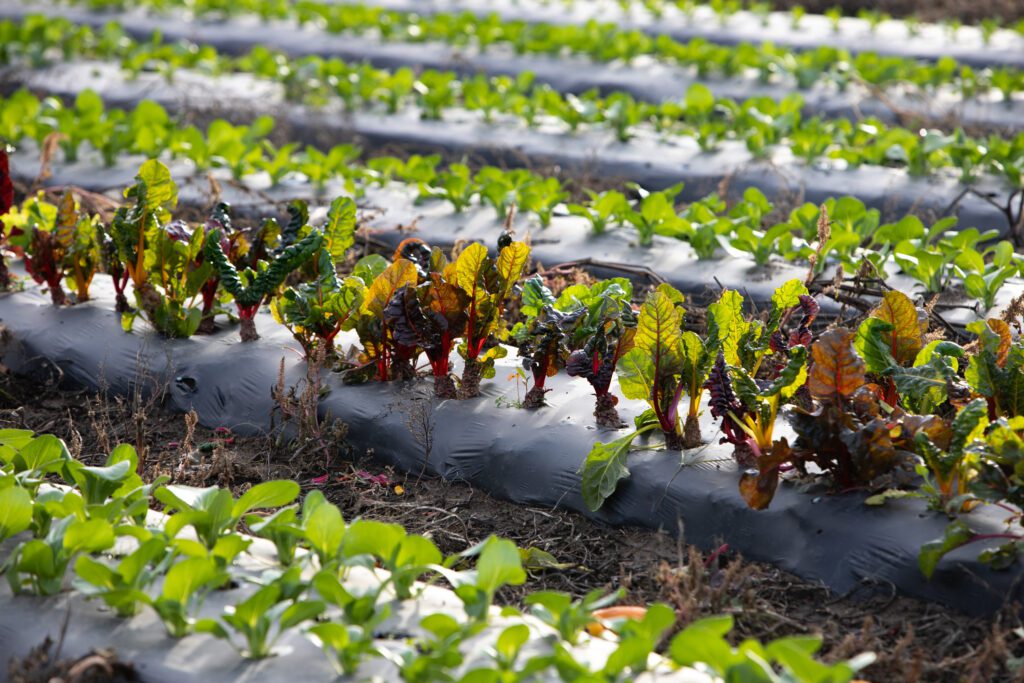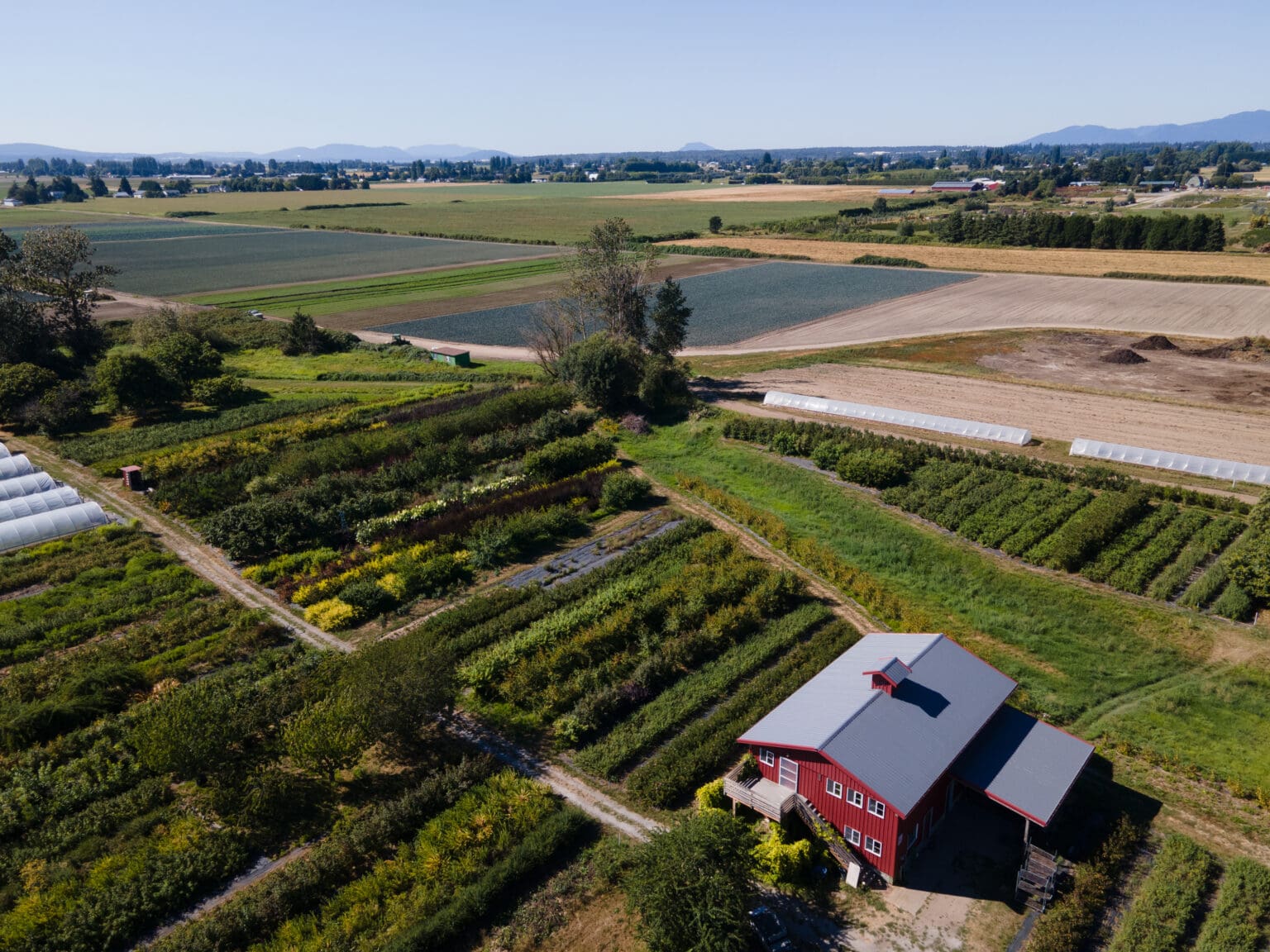MOUNT VERNON — When a brand-new wedding venue opened up next door to longtime cattle rancher Terry Sapp’s place, he saw the potential for serious, perhaps literal, rain-on-parade incidents.
Farming chores the Skagit County farmer used to do anytime he needed — pumping manure or moving cows from pasture to pasture — created a range of problems for wedding guests and the occasional bridal couple, even though the land they stood on had long been designated for farmers.
“Nonagricultural activities taking place in the vicinity of real farming, actual agriculture — there’s a possibility they could interfere,” said Sapp, who has operated his current farm in Sedro-Woolley since 2008.
The fertile Skagit Valley has long held a special place in the hearts of conservationists who treasure its bucolic pasture and farmland, diversity of crops and a magnificent tulip festival.
Skagit County leaders have worked to protect the unique agricultural land from development for decades. But now, the county is at a crossroads: protect the old-guard farmers and ranchers from encroachment, or protect the economy of smaller agribusinesses struggling to stay afloat.
Some farmers, business owners and members of an Agricultural Advisory Board (AAB) are mobilizing to preserve one of the last bastions of traditional farmland adjacent to Puget Sound from the increasing threat of urban sprawl and invading hordes of tourists.

The question at the county level and among stakeholders, though, is how to define “actual agriculture,” and who gets to operate on land zoned for agricultural use — with disagreements between the 12-member AAB and many farmers and business owners.
Proposed changes to the agritourism code would impact about 88,000 acres of land devoted to agriculture in Skagit County, restricting certain activities on that land and clarifying what can be considered “agritourism.” While U-pick or tourism-related events would not be impacted, event centers — for parties or weddings — would be eliminated entirely from the definition.
As a result, some of those smaller businesses may be on the chopping block, leading a group of stakeholders to seek a different approach to the code.

In the past four weeks, Skagitonians to Preserve Farmland worked with outside consultants and its own stakeholder group to develop an alternative code proposal, calling for more time to develop appropriate code and adding definitions for both agritourism and “farm event venue.”
Members of the stakeholder group include several event and wedding venues, a winery, representatives from the county tourism bureau and farm bureau, the Skagit Valley Tulip Festival and several tree farms and nurseries. Recommendations were submitted to the Skagit County Planning Commission on Thursday, Aug. 17.
Frequent conflicts
Though the wedding venue next to Sapp is no longer operating, similar conflicts have arisen across the county, where farmers have been asked to stop moving their cattle, spreading manure, spraying crops, or revving up sometimes-noisy machinery while tours, concerts and white-glove weddings commence next door.
To date, those requests are few and far between, with just a dozen or so tourism-specific agribusinesses operating on agricultural lands.
They are largely new variations on old agricultural themes: Grape growers who can bring in more revenue with bottled wine and tastings, while neighbors with extra barn space rent it out for weddings or celebrations. Owners say it is all in the name of survival — not just as a business, but in pursuit of the larger goal of maintaining rural lands as family-owned parcels, accessible for generations to come.
“Profitability is just not in small-scale agriculture,” said Diane Szukovathy, co-owner of the about-five-acre Jello Mold Farm near Mount Vernon. “There’s no safety net. We don’t take a paycheck. We have to collaborate with Mother Nature to make a living.”

Szukovathy said farms like hers — one of many small farms in the Skagit Valley — are the lifeblood of the county, providing food security, wildlife habitat and environmental stewards to protect the land.
Across the valley, though, farms are stratifying, with a handful of very large profitable agricultural operations working alongside a larger number of very small operations that are struggling. While the massive, 1,000-acre-plus farms get bigger — funded by contracts with grocery giants like Costco, Walmart and Kroger — the smaller farms, selling on-site or through farmers markets and regional wholesale networks, can’t keep up.
Part of the challenge, particularly for smaller farmers, is the high cost of operating: equipment, salaries, transport and even water can dramatically increase overhead and, down the road, the cost of food for consumers.
Though she doesn’t use her farm for agritourism activities — yet — Szukovathy said such extra income helps keep the smaller-scale farmers afloat.
“I sit on this smaller piece of land in the heart of the farmland, and it’s not so easy to make a living on 5 acres,” Szukovathy said recently from inside her barn. “And I’m thinking, maybe we could teach stained glass classes here in the wintertime, and that might really help us keep our farm business going without stressing out so much.”
Hosting events could get harder
Hosting events and classes on agriculturally zoned land, though, could get harder down the road as the Skagit County Planning Commission rethinks agritourism codes.

The changes would require non-agricultural businesses on ag-zoned land to cease operations.
Members of the AAB — who are appointed by county commissioners — maintain that the proposed changes aren’t radical or new, but rather a clarification of existing county codes and laws. None of the members of the 12-person panel operate event venues in the county.
The proposal “is largely consistent with existing law,” said Sapp, a member of the AAB. “And what exists is substantially supportive of agricultural activities predominantly in the agricultural zones.”
“It will probably not impact the smaller farms at all,” Sapp added.
Michael Hughes, another Skagit Valley farmer and chair of the AAB, echoed Sapp.
“We used current code that’s been in place for 30 years and clarified what the code meant,” Hughes said. “This [proposal] was meant to clarify what the current code in the county is. All we did was explain current code.”
Several local farmers and event center owners, though, disagreed with that assessment, calling the codes “restrictive” and a major concern for smaller farmers who use weddings, wine tastings and special event rentals to supplement their income.
“Our venues help supplement our small farms and give us an opportunity to teach our guests about the value of our protected farmland and the rich history of our valley and our homesteads,” wrote the group Save Skagit Farm Venues, formed by residents who own farmland and host events in the region. “This new proposed code would shut down all but two venues in Skagit County.”
And many of those farmers felt left out of the code change conversations.
“The Skagit agricultural community is made up of [primarily] large-scale and mid-size farms and the voices of small farms can be left out,” said Allen Rozema, the executive director of Skagitonians to Preserve Farmland. “We’re trying to make sure all the voices are heard.”

Szukovathy, who sits on the board of Skagitonians to Preserve Farmland, believes there’s a way to support both large and small farmers and the agritourism industry in the valley.
“We have to preserve this gorgeous, open space,” Szukovathy said. “But I want to make sure that we don’t accidentally limit the possibilities for farms like ours to be able to diversify our operations to stay on the land.”
Though the challenge to preserve the character of the farmland is relatively new in Skagit, communities across the country have fought — and, at times, failed — to solve it. Similar code changes and proposals have come up in Whatcom, Chelan, Snohomish and Spokane counties.
“We’re not unique here,” Sapp said. “In many counties, and in many states, I think it’s just descriptive of our changing times where agricultural lands are becoming attractive places for tourism.”
Public comment on the proposed code changes closed Aug. 17. Next, the proposal will head to the county planning commissioners, who will review the language alongside the hundreds of submitted public comments before a hearing scheduled later this year.




